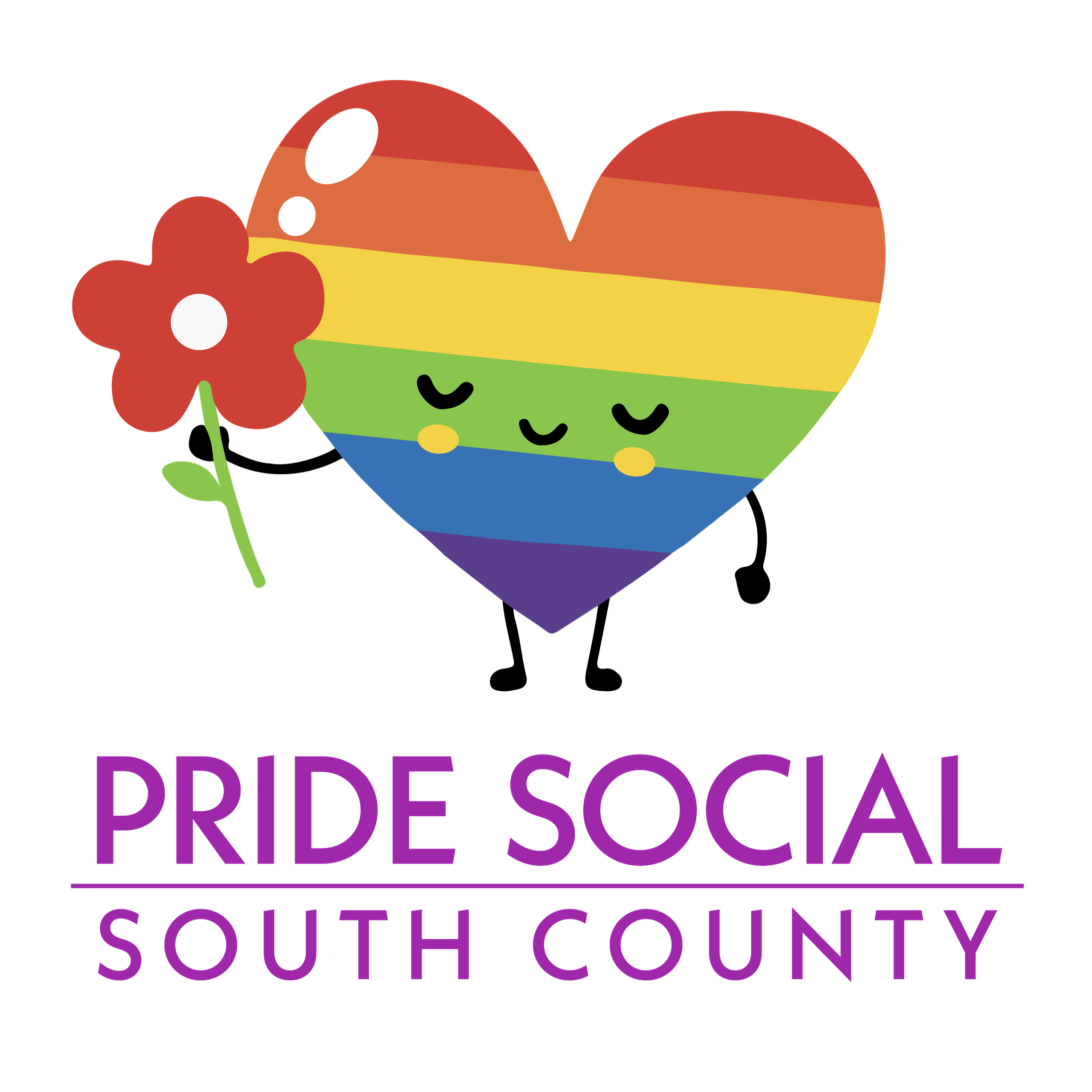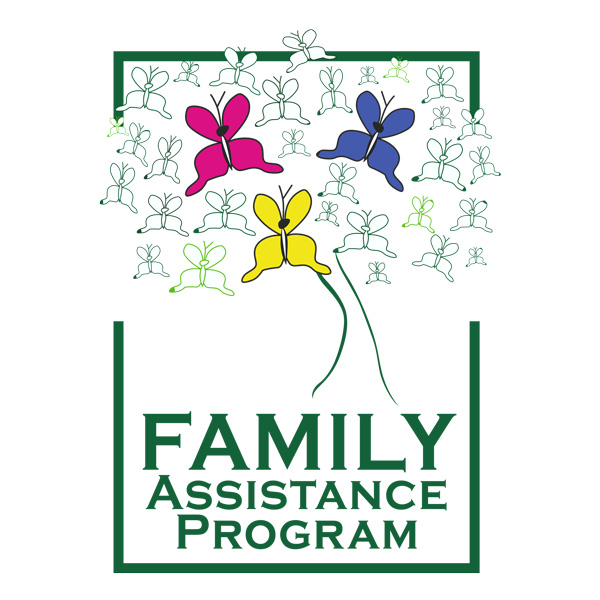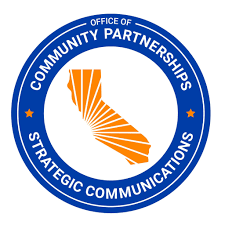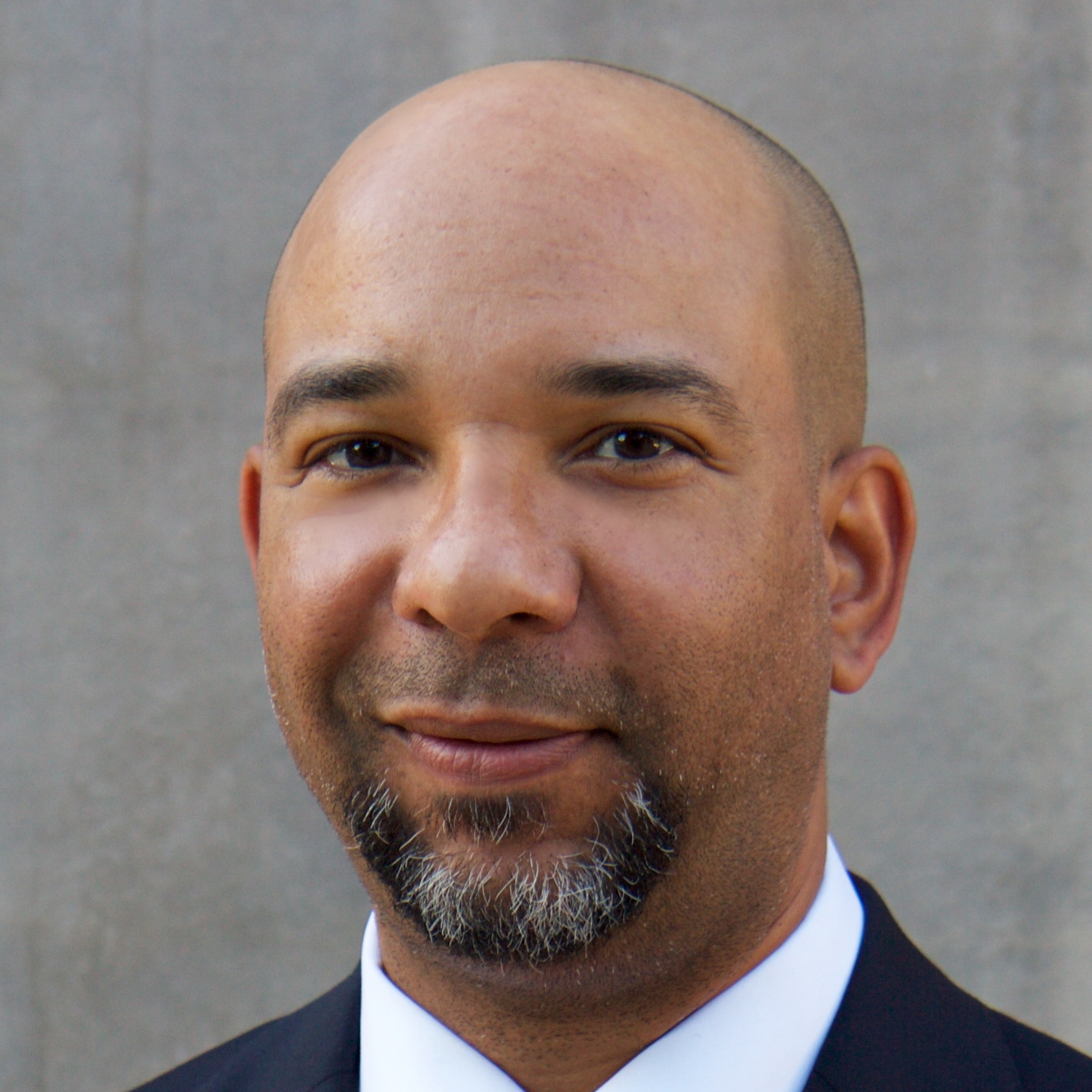Community Conflict Resolution Unit
Our mission is to promote peaceful relations by assisting communities experiencing fear, conflict, or tensions relating to discriminatory practices, hate incidents, or hate crimes that have a community impact.
What We Do
We work with communities and/or local and state public bodies to constructively manage or resolve conflict, minimize or eliminate the potential for violence, reduce or eliminate antagonism within communities, or help them reach mutually acceptable outcomes. California Government Code sections 12931-12933.
We work closely with stakeholder groups affected by conflict to ensure that solutions include community-driven input. We believe that community collaboration is most effective in addressing concerns related to hate and discrimination-based community conflict.
CCRU accomplishes our work by:
- Designing Conflict Resolution Processes. We recognize that one size does not fit all when it comes to communities and conflicts. As a result, we tailor our conflict resolution processes to the community groups and issues involved in a conflict.
- Facilitating Community Engagement Processes. We assist communities to access, engage, and have discussions with government, schools, other communities, and/or other persons involved in the community issues.
- Mediating Community Disputes. We do not mediate disputes related to the litigation of administrative or civil complaints. Rather, we help facilitate conversations and mediate disputes between different communities.
- Education and Training. We develop and provide education and training on issues related to resolving community conflict. Visit the Resources and Publications tab and/or the Request CCRU Services tab to find out more about CCRU trainings.
- Providing Consultations. We are available if you are involved in a community conflict and want to seek assistance and/or or advice.
Examples of CCRU services include, but are not limited to:
- Mediating conflict among community groups involving hate- or bias-related speech or incidents based on sexual orientation, gender identity, or gender expression threatening peaceful community relations;
- Assisting community groups to design accountability measures in collaboration with law enforcement to ensure responsiveness to hate- and bias-related incidents;
- Facilitating dialogues between non-profit organizations and local governments to ensure meaningful access to government decision-making processes for the deaf community, communities of color, and communities including persons with limited English proficiency;
- Educating government entities, like Human Relations Commissions, about inclusive community engagement and inclusive practices;
- Providing consultations to student groups and educational institutions on best practices to grow, learn, and heal after a hate-related incident; and
- Assisting community groups and law enforcement with designing community input processes to address concerns in police-community relations following allegations of excessive use of force.
We recognize that to meaningfully support public safety and resilience in communities, we must look beyond the existing criminal and civil legal systems and ensure that communities experiencing discrimination lead and are centered in working toward solutions. When there is tension in a community around discrimination—whether it is in the aftermath of a police shooting, a hate crime or hate incident, or an employment or housing civil rights issue—we may be able to assist. We recognize that conflict also offers opportunities to help communities address long term issues, systemic forms of discrimination, develop community-focused solutions and restorative practices, and enhance communities’ capacity to independently prevent and resolve future conflict.
Who We Work With
CCRU works with communities and state and local public bodies serving communities that are experiencing tension. Whether a community is part of an officially recognized legal entity or simply a collection of community members united by a common cause, we can work with your community!
Examples of communities and state and local public bodies we work with include:
- Community Groups
- Nonprofit Organizations
- Government Agencies
- Schools and School Districts
- Religious Organizations
- Demonstration Groups
- Human Relations Commissions
- Law Enforcement
- Community Advocacy Groups
- Colleges and Universities
- Tribal Groups
- Elected Officials
- Other persons directly impacted by community conflict
- Other state and local public bodies
| Activity | What We Do | Date |
|---|---|---|
| Event | CCRU supported the efforts of Pride Social South County which hosted the first annual Gilroy Pride. CCRU provided resources and information about the Civil Rights Department's anti-hate resources and the right to be free from discrimination in employment, housing and places of business. As reported, Gilroy's inaugural Pride marks a historic moment for LGBTQ+ residents in South Santa Clara County who have long faced isolation, harassment, and a lack of visibility in the largely agricultural region. | August 2nd, 2025 |
| Consultation | CCRU consulted with the Palm Springs Human Rights Commission to help address community tensions. | July 14th, 2025 |
| Facilitation | CCRU was asked by the California State Secretary of Tribal Affairs to help facilitate one of its largest subcommittees (Status and Identity) on the California Truth & Healing Council. CCRU began facilitating meetings in January 2024. For a year-and-a-half, CCRU worked with California tribes, their members, and descendants to assist them in developing recommendations to address past grievances and genocide against them. The California Truth & Healing Council bears witness to, records, examines existing documentation of, and receives California Native American narratives regarding the historical relationship between the State of California and California Native Americans in order to clarify the historical record of such relationship in the spirit of truth and healing. These draft recommendations will be sent to the governor and state legislature. The Council will submit a final written report of findings to the Governor's Office in 2025. (See California Truth & Healing Council | The Governor's Office of Tribal Affairs.) | June 24th, 2025 |
| Mediation | Community mediationCCRU mediated a matter between representatives of a community group and a city over a city policy. The community group raised concerns that the city was distributing permits in a potentially discriminatory manner. Due to a significant lack of trust between the parties, CCRU conducted hours of shuttle mediation via Zoom in preparation for the in-person joint mediation session. During the joint session, the parties worked together to develop a new permit allocation policy. At the conclusion of the mediation, many of the issues were resolved. | June 10th, 2025 |
| Facilitation | CCRU continues its efforts in a community grappling with significant conflicts between Black and Latino youth, which have led to documented incidents of racial slurs, fighting, and other discriminatory behavior. In October 2024, March 2025, and, again in June 2025, CCRU facilitated meetings with local youth, parents, nonprofits, and local leaders, focused on fostering understanding and promoting a more inclusive environment for all. | June 3rd, 2025 |
| Consultation | For over a year, CCRU provided consultations and technical support to a community forming an anti-hate coalition in southern California. CCRU continues to provide assistance with planning and facilitation to the newly formed coalition. | June 2nd, 2025 |
| Training | CCRU provided de-escalating tension and navigating difficult conversations training to an Inland Empire LGBTQ+ center. | May 20th, 2025 |
| Facilitation | CCRU was invited by the California Department of Social Services to participate in a daylong Stop the Hate Convening in Sacramento. CCRU facilitated breakout sessions on conflict resolution principles with Stop the Hate grantees. | May 12th, 2025 |
| Forum | CCRU presented an overview of the Civil Rights Department, the Ralph Civil Rights Act, and provided information on the department's anti-hate resources, including CCRU, at Tuolumne County Hate Crimes Forum held at Columbia College in Sonora. | May 8th, 2025 |
| Training | CCRU provided training to 475 grantees of the Governor's Office of Community Partnerships and Strategic Conversations on de-escalating tension and navigating difficult conversations when interacting with members of the public. | May 2nd, 2025 |
| Facilitation | CCRU facilitated meetings between an LGBTQ+ community group and law enforcement to improve relations and create community trust. This effort will culminate in a Hate Crimes Forum. | May 2025 |
| Outreach & Education | CCRU attended the City of Davis Human Relations Commission meeting and provided information about CCRU's work, the Civil Rights Department's anti-hate initiatives, and explored possibilities for collaboration. | April 24th, 2025 |
| Outreach & Education | CCRU attended Sonoma County Commission on Human Rights meeting and shared information bout CCRU's work and the Civil Rights Department's anti-hate resources. | April 22nd, 2025 |
| Consultation | CCRU provided consultation services to a nonprofit representing Asian food vendors who were told via text that they could no longer sell their food at the local farmers' market. | April 2025 |
| Consultation | CCRU provided a consultation on contingency planning to a faith group protecting an invited speaker from potential protests, hate and violence. | March 28th, 2025 |
| Training | CCRU provided a second training to 95 city staff of a Bay Area city on de-escalating tension and navigating difficult conversations and when interacting with members of the public. | March 25th, 2025 |
| Event | CCRU attended the Tribal Nations Summit and participated in a panel discussion on improving relations between tribes and local government. | March 24th, 2025 |
| Conference | CCRU attended the Ohio State University, Moritz College of Law, Divided Community Project (DCP) Conference. DCP provides dispute resolution and systems-design expertise to help local community, civil rights departments, and university leaders enhance community resiliency and prepare for and respond to events that polarize their communities. | March 16th, 2025 |
| Facilitation | CCRU facilitated a dialogue between an advocacy group and local leaders around issues of racial discrimination. | March 11th, 2025 |
| Training | CCRU provided training to 45 city staff of a Bay Area city on de-escalating tension and navigating difficult conversations and when interacting with members of the public. | February 25th, 2025 |
| Activity | What We Do | Date |
|---|---|---|
| Event | CCRU provided information about hate prevention resources available through the Civil Rights Department and free community conflict resolution support available for communities seeking to resolve conflicts in San Diego and Imperial Counties. | November 21st, 2024 |
| Forum | CCRU presented at the Bakersfield Anti-Hate Forum on its services and the Civil Rights Department's anti-hate initiatives, hate crimes resources, and the differences between hate crimes and hate incidents to over 80 attendees. CCRU was a member of the planning group leading up to the forum, which met twice monthly to plan. | November 21st, 2024 |
| Education | CCRU attended Family Empowerment Day at Riverbank Elementary School and shared information about the Civil Rights Department and CCRU services. | November 16th, 2024 |
| Education | CCRU provided information about CCRU and other Civil Rights Department services to a hate crimes class of students at California State University Los Angeles. | November 2024 |
| Facilitation | In central California, in response to a Black advocacy organization's request for assistance, CCRU designed and implemented a facilitated discussion between Black and Latino middle school youth to address incidents of racial slurs, fighting, and other discriminatory behavior to foster understanding and promote a more inclusive environment. CCRU continues its efforts in a community grappling with significant conflicts between Black and Latino youth. | October 21st, 2024 |
| Education | CCRU attended the Imperial Valley Social Justice Committee Stop the Hate event in El Centro in Imperial County and provided an overview of its services and those available through CA v Hate. | October 18th, 2024 |
| Consultation | CCRU provided a consultation to a Black media outlet interested in conducting their own anti-hate town hall. CCRU proposed framing, format, and dialogue questions. | October 2024 |
| Training | CCRU provided training to over 100 staff of a city in coastal northern California on de-escalating tension and navigating difficult conversations when interacting with members of the public. | September 26th, 2024 |
| Summit | Housing SummitIn response to concerns raised by individuals, community members, and legal advocates, CCRU organized, coordinated and hosted an educational summit. The community was experiencing ongoing conflicts between residents and housing providers. As part of the programming, CCRU provided training to local leaders on navigating difficult conversations and de-escalating tension in the housing context. CCRU also facilitated the summit programming, developed questions and moderated a panel of local service providers. The summit addressed misinformation and tensions centered around disability rights and the need for housing providers to implement necessary changes to comply with disability access laws. | September 25th, 2024 |
| Event | CCRU attended and presented about CRD's anti-hate initiatives and resources at the Pasadena v. Hate resource fair. | September 22nd, 2024 |
| Facilitation | CCRU facilitated discussion amongst advocacy groups and state and local government agencies about concerns from the disability community, non-citizens, and non-English speakers that welfare benefits were being administered in a discriminatory manner rendering such benefits as nearly inaccessible. After communicating with advocacy organizations and conducting several listening sessions, CCRU identified opportunities for meaningful engagement between local government administering these programs and beneficiaries. CCRU developed and shared recommendations with local and state agencies in August 2024. | August 2024 |
| Conciliation | Improving Tribal and local government relationsCCRU successfully facilitated a historic meeting and dialogue between a tribal council and county government in rural northern California in order to improve relations. CCRU created a space for dialogue and collaboration where previously there had been deep pain and mistrust. | August 2024 |
| Training | CCRU was contacted by a Filipino nonprofit organization in the Inland Empire for assistance addressing growing community fears that national rhetoric around hate will lead to increased division and hate speech. CCRU provided de-escalation and conflict resolution training for the organization and the community it serves. | June 2024 |
| Forum | CCRU participated as a panelist discussing resources available to address community conflict and hate at the Southeast Los Angeles Hate Crimes Forum in Lynwood. | May 31st, 2024 |
| Event | CCRU presented at the Beverly Hills Human Relations Commission about CCRU's mission to promote peaceful relations by assisting communities experiencing fear, conflict, or tensions relating to discriminatory practices, hate incidents, or hate crimes that have a community impact. | April 18th, 2024 |
| Case Study | A local government neighborhood council sought CCRU assistance to address conflict amongst its members and members of the public that was interfering with its operations and responsiveness. CCRU worked with council leadership to develop strong community agreements to govern council meetings and engagements with the public. CCRU also prepared leadership to facilitate discussions about the community agreements at several council meetings and on how to obtain buy-in from council members. | April 2024 |
| Facilitation | In central California, in response to a Black advocacy organization’s request for assistance to address conflict between communities based on race and ethnicity, CCRU designed and facilitated a dialogue amongst local leaders to foster understanding, promote a more inclusive environment, and planned a dialogue amongst Black and Latino students. | February 25th, 2024 |
| Activity | What We Do | Date |
|---|---|---|
| Collaboration | CCRU collaborated with the Commission on the State of Hate, Forum Subcommittee to plan the Commission's Community Forum on threats and harassment toward public officials. | December 8th, 2023 |
| Collaboration | CCRU collaborated with the Commission on the State of Hate, Forum Subcommittee to plan the Commission's Community Forum on the state of hate for California's youth. | November 9th, 2023 |
| Outreach | CCRU introduced itself to and discussed potential collaborations with the Pasadena Human Relations Commission. | November 6th, 2023 |
| Event | CCRU attended and provided civil rights information at the 56th Annual Native American Day event held at the state capitol. | September 22nd, 2023 |
| Collaboration | CCRU collaborated with the Commission on the State of Hate, Forum Subcommittee to plan the Commission's Community Forum on the state of hate in California. | May 24th, 2023 |
| Event | CCRU attended and participated in the Stop the Hate event in Sacramento, commemorating the official launch of CA v Hate. | May 4th, 2023 |
| Outreach | CCRU presented to Long Beach Human Relations Commission on CCRU’s services. CCRU has conducted extensive outreach to county and city human relations commissions to fortify collective strength throughout the state. | April 5th, 2023 |
| Case Study | Water AccessTwo nonprofit legal advocacy organizations contacted CCRU for assistance addressing a rural Asian community’s difficulty accessing water for basic personal use. CCRU convened and facilitated a conciliation process with state water and environmental agencies, through which the participants addressed the community’s request for assistance, their mutual interests, and potential collaborative opportunities. CCRU designed and provided a process and venue for government to hear community concerns, reassure the community that it operates free from bias, and identify collaborative opportunities to facilitate water access to affected members of the community. | April 2023 |
| Collaboration | In support of the Commission on the State of Hate, Forum Subcommittee, CCRU hosted a listening session of Southern California interfaith leaders concerning acts of hate against and concerns of their religious communities. The gathering provided a platform for religious communities to share their experiences with acts of hate and express concerns impacting their congregations. By fostering open dialogue, CCRU helped amplify these voices and deepen understanding across faith traditions, laying the groundwork for collaborative strategies to counter religious hate and promote unity. | March 17th, 2023 |
| Outreach | CCRU presented about its services and resources available to address community conflict at the California Department of Social Services (CDSS) Stop the Hate Convening attended by 24 CDSS grantee organizations in Los Angeles County spreading important information to advocacy organizations as to how to address acts of hate and community conflict. | March 10th, 2023 |
| Case Study | Welfare BenefitsCCRU was engaged by five advocacy organizations to help tackle systemic barriers faced by vulnerable communities—particularly persons with disabilities, non-citizens, and persons with no or limited English proficiency—when attempting to access critical governmental support systems. CCRU worked closely with advocacy groups to identify and synthesize core issues before inviting more than 25 state and local government entities to engage in introductory meetings and listening sessions. These conversations culminated in a facilitated conciliation meeting, providing a structured space for shared understanding, relationship-building, and action planning to improve access and equity across public support systems. | March 2023 |
| Case Study | Enforcement of state criminal law on tribal lands by local law enforcement agencyA tribally designated housing entity, working on behalf of Native American individuals and tribes, sought CCRU services to assist the tribes in obtaining local law enforcement of state criminal laws on tribal lands. On behalf of several tribes, the housing entity sought law enforcement assistance when domestic and other violence was perpetrated on tribal lands. CCRU collaborated with the Office of the Attorney General’s Office of Native American Affairs to provide targeted education and outreach on Public Law 280. These efforts focused on enhancing understanding among tribal governments and local law enforcement agencies, fostering more effective partnerships and ensuring a coordinated approach to community safety. | February 2023 |
| Case Study | Rapid ResponseIn January 2023, there were two mass shootings in Monterey Park and Half Moon Bay, affecting historically marginalized communities and leaving them in deep grief and conflict. While investigations ultimately revealed that the attacks were not motivated by hate, their devasting impact was felt among populations already targeted by prejudice and discrimination. Language barriers and systemic biases against immigrants compounded their vulnerability, making it difficult to assess the support that the community needed. In response, CCRU stepped in to bridge this gap. Within the first 48 hours, CCRU quickly assessed needs and mobilized a collaborative group of government agencies, including the Victims Compensation Board, to assist survivors in accessing vital services and benefits. This early and proactive involvement helped create a more stable environment, mitigating further unrest following the tragedy. CCRU’s efforts culminated in a statewide community resource session, complete with live interpretation and participation from trusted local agencies trusted by the community. The result was compassionate, culturally competent support delivered in a way that truly met the communities where they were. | January 2023 |
| Activity | What We Do | Date |
|---|---|---|
| Announcement | California Conflict Resolution Unit ("CCRU") LaunchAs part of California's ongoing response to the alarming rise in reported hate crimes, the Civil Rights Department's Community Conflict Resolution Unit (CCRU) was launched to partner with communities, as well as state and local governments, to proactively address and resolve tensions stemming from alleged discriminatory practices, hate incidents, or hate crimes. CCRU continues to expand its outreach across California, including school districts, tribes, community groups and CBOs, interfaith organizations, human relations commissions, boards of supervisors, city councils, and law enforcement agencies to support communities navigating fear, division, or unrest. | October 4th, 2022 |
| Statutes and Regulations | Under, the California Fair Employment and Housing Act, the Civil Rights Department ("CRD") is vested with key responsibilities and authority including the ability to act as a peacemaker in times of community conflict or tension relating to discriminatory practices. The Act also directs CRD to maintain coordination with the human relations commissions throughout the state, supporting collaboration and unified responses to civil rights issues. California Government Code sections 12931, 12932, and 12933; California Administration Code Title 2, Sections 10300, 10301, 10302, and 10303. | October 2022 |
How We Can Help
The California Fair Employment and Housing Act describes the functions, duties, and powers of CRD and empowers CRD to act as a peacemaker when communities experience conflict or tension relating to discriminatory practices. California Government Code sections 12931-12933.
Community conflict resolution services are unique processes that can help resolve community disputes, disagreements, and difficulties outside of the traditional civil and criminal justice systems and administrative complaint processes available through CRD.
Benefits of using community conflict resolution services include:
- Creative, flexible, and highly customized processes and environments;
- Non-adversarial (no enforcement or discrimination “findings” or “judgments”);
- Opportunities to de-escalate tensions collaboratively;
- Self-determination, which empowers and supports participants to reach mutually agreeable resolutions;
- Saving time, stress, and money associated with no process or formal legal processes;
- Preserving relationships through voluntary cooperation by all participants; and
- Avoiding long-term, potentially harmful precedents.
Our Work
Page coming soon…

Pride Social South County
September 2025
On August 2, 2025, Gilroy celebrated its first Pride celebration, against all odds. South County (Gilroy, San Martin & Morgan Hill) remains a remnant of a not-so-distant past when it was acceptable and legal to discriminate against others for their race, religion, sexual orientation, gender, gender identity or national origin.
Our nonprofit, LGBTQ Pride Social South County, engages in advocacy from Morgan Hill to Gilroy. We fight for space. We fight to raise the Pride flag. We fight against hate, hate incidents, and hate crimes, which are alarmingly common. We provide support and resources to our community.
Because I am the founder and leader, I have been harassed in person and on social media. Over the past year Pride Social South County has worked with the Community Conflict Resolution Unit (CCRU). CCRU provided consultations and on-the-ground support at the August 2 Gilroy Pride in both English & Spanish. CCRU provided the information and resources that our community needs—now more than ever. CCRU’s presence and visibility shows all citizens that there’s help and that the community is not alone.

Santa Barbara NAACP
February 2025
The CCRU team has been an incredible resource. Their expertise and facilitation are helping us shape a series of community dialogues, giving our community the opportunity to work through some challenging issues on racism, discrimination, and hate. We do not have this kind of support as communities of color. The resources they bring are even more crucial at this time. Their ability to help us craft these dialogues to create deeper community engagement and change has been invaluable.

Family Assistance Program
February 2025
CCRU has had an invaluable impact in my and the Family Assistance Program’s efforts to implement our Stop the Hate Anti-Hate Crime campaign for San Bernardino County! The access to the posters for distribution and the support of the community outreach team has helped us continue to build awareness. Most important has been the guidance and organizing supporting the development and formation of the first San Bernardino County Human Rights Coalition! The CCRU are skilled thought partners who apply effective organizing tools for systemic change! In the end their contribution to our work will directly impact the safety of people in our community!

The Office of Community Partnerships and Strategic Communications (OCPSC)
The Office of Community Partnerships and Strategic Communications (OCPSC) partnered with the Community Conflict Resolution Unit (CCRU) to deliver the “Navigating Difficult Conversations and De-Escalating Conflict” training to our Trusted Messenger Network, with nearly 450 representatives participating.
We worked closely with CCRU to design a training tailored to community-based organizations. CCRU’s engaging and knowledgeable approach made the session highly interactive. Participant feedback was overwhelmingly positive, and we are excited to launch an additional training this fall.
Coordinating some of California’s most important statewide public awareness and community engagement programs, OCPSC is committed to providing culturally relevant initiatives that strengthen trust and increase collaboration across communities.

Riverbank School
As a campus leader at a Community School and Newcomer school site, staying informed is not just a priority-it’s a necessity. I was truly grateful to receive valuable resources from “California against Hate,” as I sought information to empower both my school staff and the families we serve. The posters were distributed to classrooms and displayed in school offices, ensuring our community had clear, accessible knowledge about their rights and how to protect their loved ones.
What made an even greater impact was having CCRU’s presence at one of our community events for parents. It was a powerful opportunity to share vital information, foster dialogue, and connect with families and community partners. Introducing CCRU to the vulnerable members of our community-many of whom are grappling with fear, conflict, and tension due to discriminatory practices, hate incidents, and crimes— was both meaningful and necessary.
I am excited about the possibility of continuing this partnership with CCRU, working together to build a safer, more informed, and resilient community.
Request CCRU Services
Communities and state and local bodies affected by a community dispute, disagreement, or difficulty must request or accept services from CCRU before we can take any action to assess the request and/or provide assistance.
Important issues to consider before requesting our services include:
- There is no cost for requesting, receiving, or participating in our services. Our services are free and voluntary.
- Requesting services does not guarantee services can or will be provided. If services cannot be provided, we will share referrals for other sources of assistance.
- If community groups or others have potential legal claims, requesting and/or participating in our services is separate from those claims. Requesting or receiving CCRU services does not “stop the clock” on other important legal deadlines that may apply to community groups or individuals within communities who are experiencing community conflict.
- Communities and individuals within communities may seek other services or legal remedies at the same time as they request, accept, or participate in CCRU services.
Services can be requested by completing the online Request for Service Form.
CCRU works with communities and is not authorized to accept employment or housing discrimination complaints. If you would like information about filing an employment or housing discrimination complaint, please visit the Civil Rights Department webpage that provides information about the complaint process.
You may also request CCRU services by filling out a Request for Service form, available below, and emailing it to CCRU@calcivilrights.ca.gov or by mailing the Request for Service Form to:
Civil Rights Department
Attention: Community Conflict Resolution Unit
651 Bannon Street, Suite 200
Sacramento, CA 95811
CCRU’s Request for Service Form:




